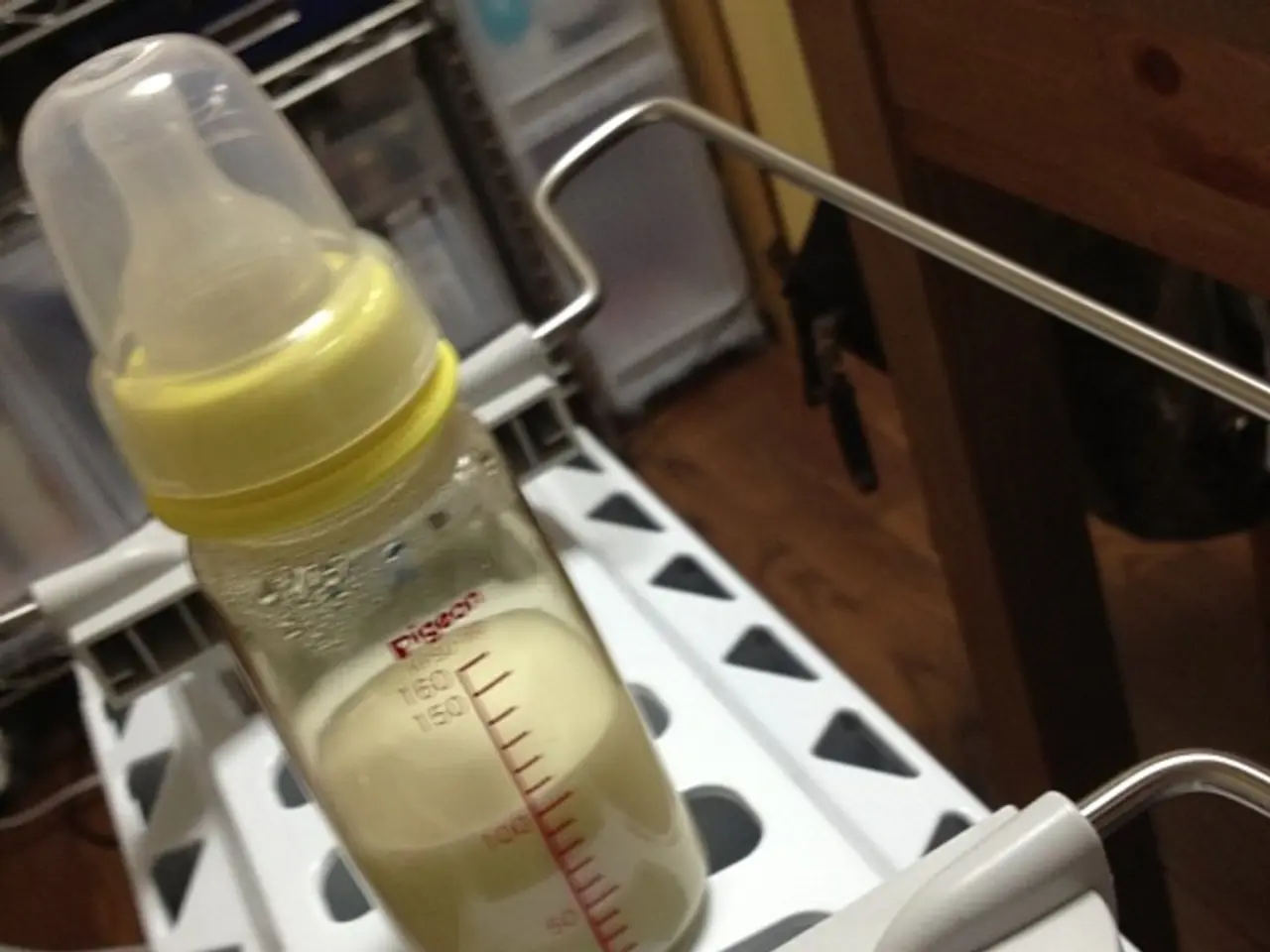Benefits and Application of Breast Milk for Eczema: Guide and Additional Information
Breast milk, long celebrated for its nutritional benefits, is gaining attention as a potential home remedy for eczema, particularly in infants and young children. While the use of breast milk for eczema is still a new concept in healthcare, it shows promise, with some research suggesting it can be as effective as low-potency steroid creams for conditions like diaper rash and eczema.
Breast milk is rich in hormones, bioactive factors, and beneficial bacteria that may promote skin cell growth, repair, and immune modulation, helping soothe eczema symptoms and reduce inflammation. A study involving 141 babies showed human breast milk was as effective as 1% hydrocortisone cream in treating acute diaper dermatitis, a condition closely related to eczema in infants. Breast milk also boasts antibacterial, antiseptic, and healing properties that may protect and help repair irritated skin.
However, it's important to note that most supporting evidence is from small studies or anecdotal reports, primarily focusing on infants. There is limited high-quality clinical trial data on the topical efficacy of breast milk for eczema in older children or adults. For moderate or severe eczema, clinically tested treatments remain the standard of care.
Doctors often prescribe topical steroids to treat eczema, and these come in various forms such as ointments, creams, and sprays. In case of a sudden change in the appearance of skin affected by eczema, it's crucial to consult a doctor as it may indicate an infection. Without treatment, eczema can lead to potentially dangerous skin infections.
In addition to its potential benefits for eczema, breastfeeding provides numerous health advantages. It can decrease a lactating parent's risk of developing conditions such as diabetes, high cholesterol, high blood pressure, heart disease, and certain cancers, including ovarian and breast cancer. Breastfeeding also helps lower an infant's risk of diseases such as respiratory infections, childhood obesity, ear infections, diarrhea and vomiting, childhood leukemia, and sudden infant death syndrome.
While research on the use of breast milk for adult eczema is limited, studies have investigated its use for sore nipples in lactating parents. It's essential to consult a doctor before applying breast milk to the skin, especially for adults.
In summary, topical breast milk is a promising safe, natural option particularly for mild eczema and baby skincare. However, more rigorous research, especially in older children and adults, is necessary to confirm its efficacy and guidelines for broader clinical use. For moderate or severe eczema, clinically tested treatments remain the standard of care.
- Breast milk, known for its nutritional benefits, is being explored as a potential home remedy for entity such as eczema in infants and young children.
- The use of breast milk for eczema is a new concept in healthcare, yet it shows promise, with some studies suggesting it can be as effective as low-potency steroid creams.
- Breast milk contains hormones, bioactive factors, and beneficial bacteria that may promote skin cell growth, repair, and immune modulation.
- A study involving 141 babies showed human breast milk was as effective as 1% hydrocortisone cream in treating acute diaper dermatitis, a condition related to eczema.
- Breast milk has antibacterial, antiseptic, and healing properties that may protect and help repair irritated skin affected by eczema.
- Most supporting evidence for the topical efficacy of breast milk for eczema comes from small studies or anecdotal reports, primarily focusing on infants.
- While research on the use of breast milk for adult eczema is limited, studies have investigated its use for sore nipples in lactating parents.
- It's crucial to consult a doctor before applying breast milk to the skin, especially for adults, due to limited clinical trial data.
- Breastfeeding as a practice offers numerous health advantages for the lactating parent, reducing risks of conditions like diabetes, high cholesterol, high blood pressure, heart disease, and certain cancers.
- In infants, breastfeeding helps lower the risk of diseases such as respiratory infections, childhood obesity, ear infections, diarrhea and vomiting, childhood leukemia, and sudden infant death syndrome.
- For moderate or severe eczema, clinically tested treatments remain the standard of care, with doctors often prescribing topical steroids in various forms such as ointments, creams, and sprays.
- In case of a sudden change in the appearance of skin affected by eczema, it's essential to consult a doctor as it may indicate an infection.
- Eczema, if left untreated, can lead to potentially dangerous skin infections that require immediate medical attention.
- Beyond eczema, breast milk's potential benefits extend to areas such as health-and-wellness, fitness-and-exercise, skin-care, eye-health, hearing, neurological-disorders, and more.
- The field of science continues to explore the therapies-and-treatments and nutritional aspects of breast milk, seeking to better understand its role in health-and-wellness.
- In discussions about family-health, parenting, and entity like chronic-diseases, cancers, respiratory-conditions, digestive-health, cardiovascular-health, and mental-health, breast milk and its associated benefits often arise as a significant topic.




